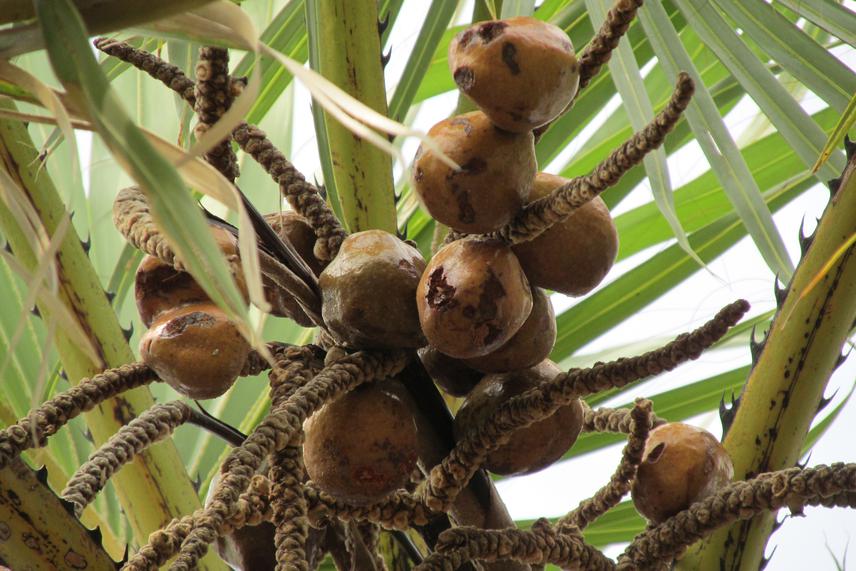Alix Frank Rodrigue Idohou
Other projects
25 Nov 2016
Assessment of Suitable Areas for Doum Palm Cultivation and Development of a Community Based Domestication Programme in Benin
12 Jun 2018
Participatory Actions towards Ecological Restoration of Agroforestry Systems Adjacent to the Biosphere Reserve of Pendjari in Benin
21 Apr 2020
Scaling-Up the Stakeholders-Led Conservation Actions in Areas Adjacent to Pendjari Biosphere Reserve in Benin (West Africa)
This study aims to combine ecological inventory, ethnoecological survey, vegetative propagation and local population education and awareness for a successful action toward the dum palm.

Dum palm (Hyphaene thebaica) ripe fruits.
Hyphaene thebaica (commonly known as dum palm) native to the semi-arid Sahelian zone of West Africa is an important tree species growing wild throughout the dry regions of tropical Africa, the Middle East and Western India. The species is a valuable source of a variety of products for many people especially those living in its vicinity, but currently its populations are harvested excessively, which is likely to increase in future. In these circumstances, it is urgent to assess the current status of the population of the species and assess its viability in a human-dominated landscape. Dum palm is also considered as an indicator of fertile soils, making it vulnerable to clearance of stands of the species for agricultural needs. This project is designed to set long term conservation strategies for the species through the entire participation of the local community.
It aims to:
i) Assess the population structure, spatial patterns and threats on the dum palm in its distributional area
ii) Assess the socioeconomic importance of the dum palm in its distributional area
iii) Test propagation methods of the dum palm seeds
iv) Initiate a community based program for a sustainable conservation of the species
This project will help to gather quantitative data and make available appropriate tool and guidelines to set a long term conservation plan for dum palm in Benin and further in Africa. This includes data on the threats to the species as well as the economic importance and contribution to household income for local communities. The project will also establish a community based-program through awareness, education and sensitization activities for the key stakeholders. Copies of the report will be available for local and national conservation-based agencies with the mains results translated in French (working language in Benin) with posters editing. Sensitization on importance of keeping the species in agroforestry systems will be made in local languages and will involve key actors.